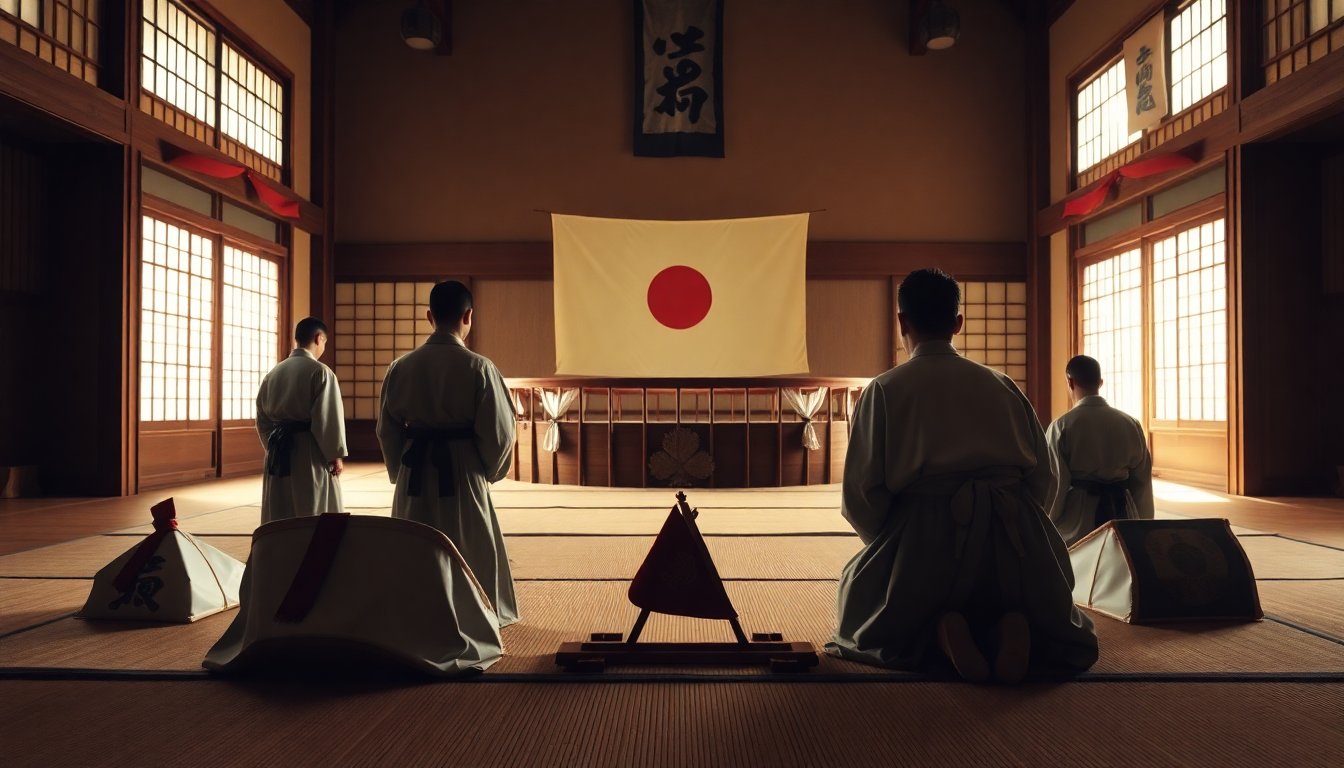Table of Contents
“`html
Japan’s first female prime minister faces cultural challenges
In a historic moment for Japan, Sanae Takaichi became the nation’s first female prime minister. Her achievement marks a significant milestone in Japanese politics. However, Takaichi’s victory is complicated by an enduring tradition in sumo wrestling that prohibits women from entering the sacred dohyo, or sumo ring. This longstanding exclusion raises critical questions about gender equality in modern Japan.
As Takaichi assumes her new role, she must navigate a society deeply rooted in traditional values. The contrast between her leadership and the cultural barriers within sumo wrestling highlights the ongoing struggle for women’s rights in the country. The situation invites further discussion on how Japan can reconcile its rich heritage with the evolving demands of gender equality.
Sumo wrestling, recognized as Japan’s national sport, has profound historical connections to Shinto beliefs, which can sometimes reinforce perceptions of female impurity. The dohyo, constructed from special clay and surrounded by rice straw, marks a spiritual boundary that women are traditionally forbidden to cross. The upcoming Kyushu Grand Sumo Tournament has ignited fresh discussions regarding Takaichi’s possible role in presenting the Prime Minister’s Cup, a position typically held by male leaders.
Tradition versus modernity: The sumo ring taboo
The Japan Sumo Association has steadfastly maintained the prohibition on women entering the dohyo, citing cultural misunderstandings surrounding these practices. Nevertheless, many critics contend that the exclusion of women reflects outdated societal norms and obstructs progress toward gender equality.
Historical context of gender restrictions
Women in Japan have historically encountered restrictions across various religious and cultural contexts, impacting areas beyond sumo wrestling. For centuries, female worshippers faced prohibitions from accessing certain sacred sites, including Mount Fuji and various shrines. These bans often arose from beliefs associating menstruation and childbirth with impurity. Naoko Kobayashi, a professor specializing in religion and gender, notes that many of these traditions trace back to earlier periods. The historical exclusion of women from decision-making roles has made it challenging to dismantle these long-standing practices.
The origins of sumo date back over 1,500 years, closely tied to rituals honoring kami, or spirits. Initially, women participated in these rituals, but societal attitudes evolved, leading to their exclusion. This historical backdrop poses a challenge for Takaichi as she weighs whether to confront these deep-rooted customs in future tournaments.
The dilemma of leadership
As Takaichi reflects on her role in awarding trophies at sumo events, the potential impact of her decisions could extend beyond the wrestling community. Analysts suggest she might choose to appoint a male representative instead, as adhering to traditional values could bolster her support among conservative voters. Her commitment to preserving Japan’s cultural heritage, which includes the patriarchal framework of imperial succession, adds complexity to her potential response regarding the sumo ring issue.
Public and political reactions
Kyushu Grand Sumo Tournament presents challenges for Takaichi
The Kyushu Grand Sumo Tournament offers a platform for Prime Minister Takaichi to demonstrate her leadership. However, she confronts a politically charged atmosphere. Just days before the tournament, Takaichi is set to attend the G20 summit in South Africa. This engagement may allow her to temporarily evade the pressures of addressing restrictions within the sumo arena. Nevertheless, the issue is expected to resurface during the New Year’s tournament in Tokyo, where expectations could intensify.
Critics assert that a female prime minister should spearhead change in a nation that ranks low in global gender equality indices. Despite Takaichi’s conservative views, the discourse around her leadership could ignite broader conversations about women’s rights and societal expectations in Japan. The World Economic Forum positioned Japan low in its Global Gender Gap Report, highlighting the pressing need for progress.
Significant developments in Japan’s political landscape
The ascendancy of Takaichi to the premiership marks a notable shift in Japan’s political environment. Her involvement with the sumo ring presents a vital challenge to her leadership. Will she adhere to traditional norms or push against established boundaries? As Japan navigates its cultural identity, Takaichi faces increasing pressure to address these intricate matters while balancing tradition with the evolving role of women in society.
The resolution of this controversy may act as a litmus test for Japan’s commitment to gender equality and the potential for substantive change in a nation steeped in history yet confronting the demands of the modern world.
“`


